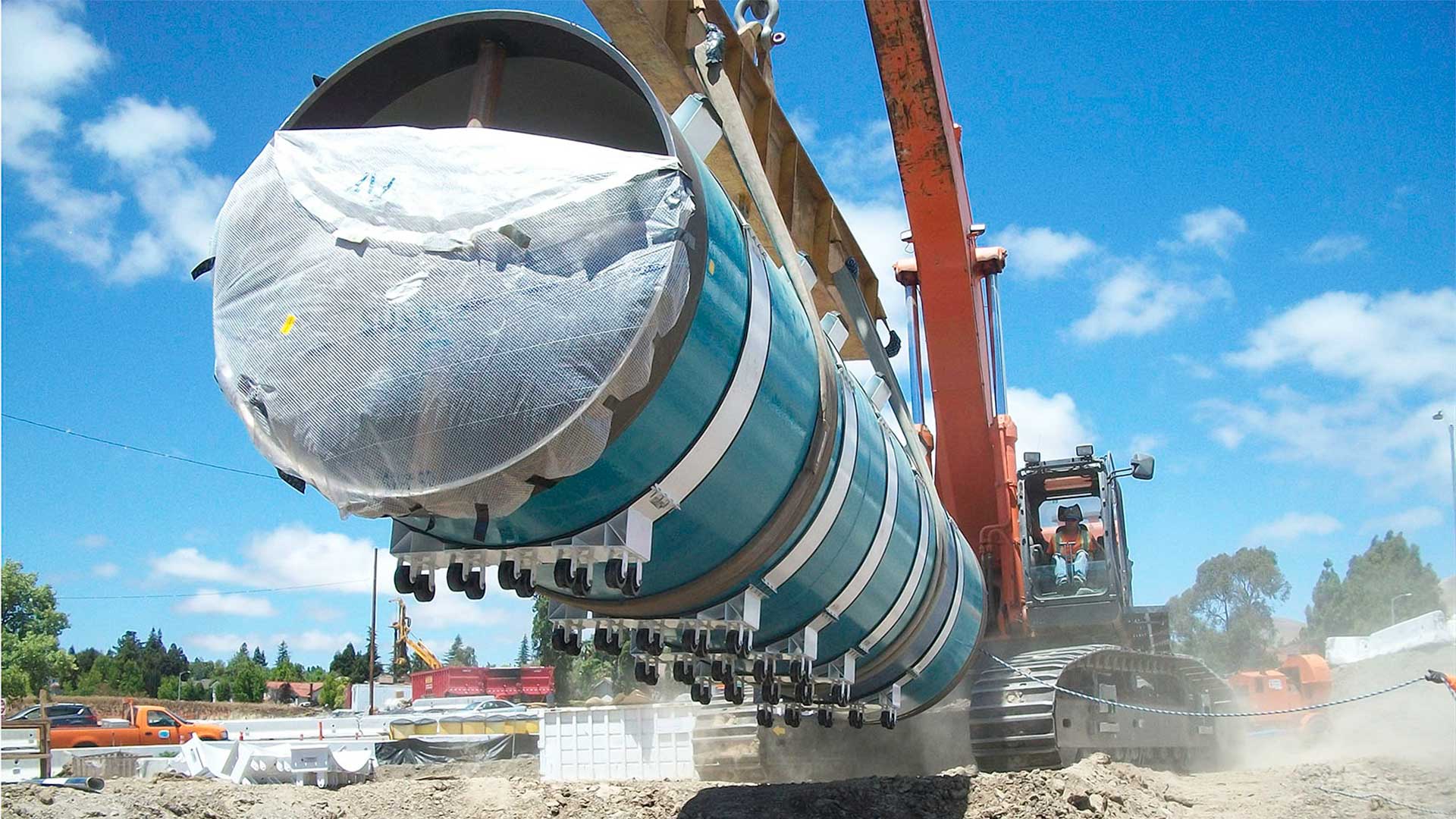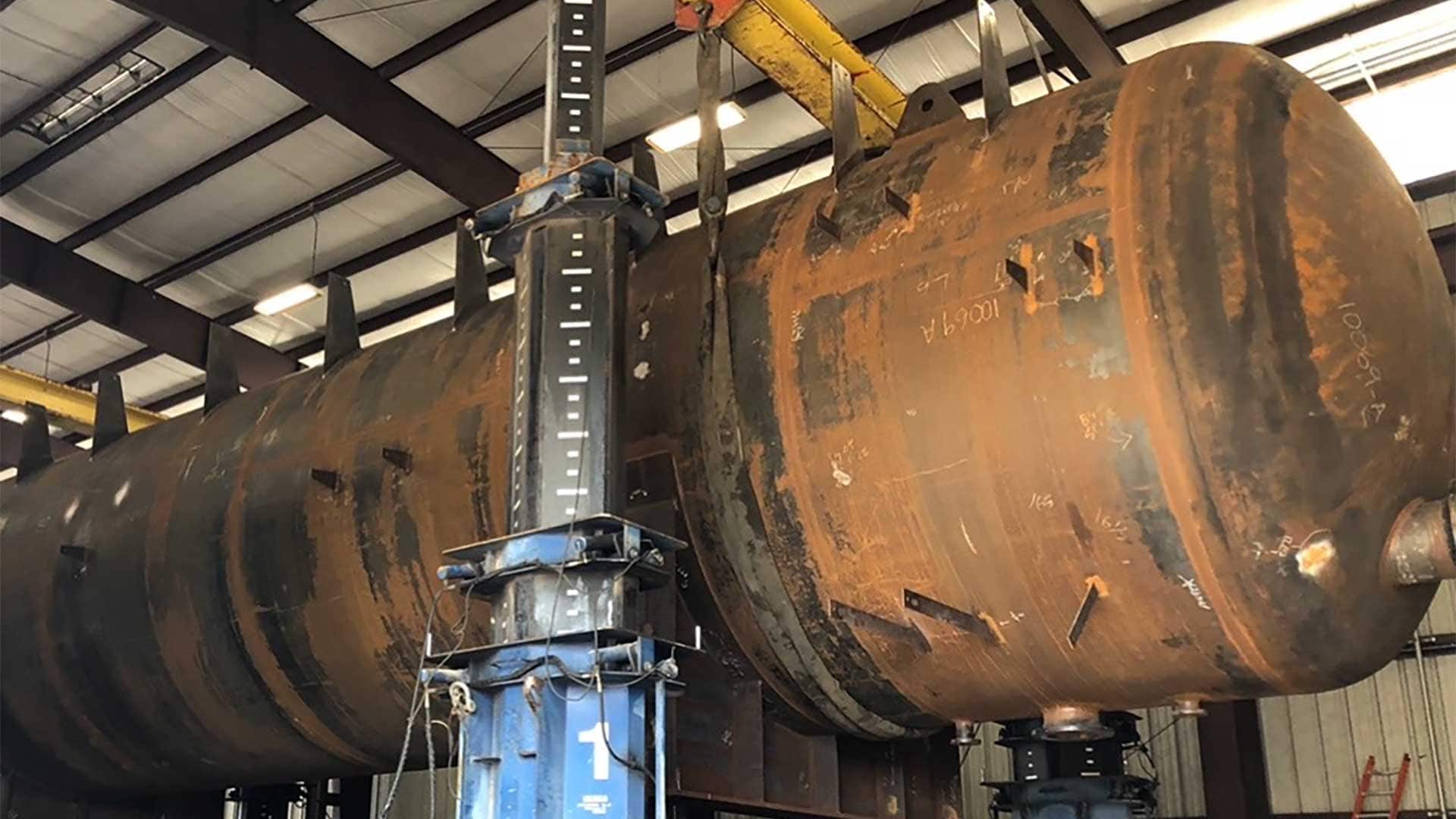The evidence is all around us: Steel’s consistent performance makes it the dominant material used in our nation’s infrastructure. More than 360,000 carloadings of ethanol were transported in 2009 – in steel tank railcars. In the petroleum and petrochemical industries, pipelines, holding tanks, terminal tanks, and dispensing equipment are all made of steel.
More and more, traditional fuels are blended with ethanol or biodiesel derived from non- petroleum sources. At both the federal and state level, regulation of emissions and concern about crude oil availability are driving this trend.
What material is best to transport, store and dispense these new fuels? Steel has been the top choice of the petroleum industry for decades and is now also required by the US military for its ethanol fuel tanks. Steel remains the best choice to contain today’s biofuels.
Independent testing has proven again and again that steel is compatible with high-percentage ethanol and biodiesel blends.
Studies Demonstrate Steel’s Compatibility
In 2010, the US Department of Energy (DOE) funded a study conducted in collaboration with Underwriters Laboratory (UL), Oakridge National Laboratory (ORNL) and other entities.
Steel coupons were evaluated for corrosion when immersed in ethanol blend fuels with added contaminants, to mimic real -life conditions and steel’s long-term response.
ORNL’s study report states that, “…mild steel…and stainless steel were found to be essentially immune to corrosion…” Further, in tests on in-use equipment, the study says that, “…there was no noted effect on metallic parts or equipment…” by ethanol blends.
In another study, conducted by Det Norske Veritas (DNV), an independent research foundation, steel corrosion rates for E30, E70 and E95 were “below detectable limits.”
The Southwest Research Institute (SwRI) measured the corrosion rate of steel exposed to various biodiesels and biodiesel/petroleum blends under conditions simulating 12 months of storage. SwRI “found no significant level of corrosion and no formation of pits,” according to the Steel Tank Institute, which co-funded the study.
UL Listing Includes High-percentage Blends
Steel tanks that meet standards set by organizations such as UL, SwRI, API and STI are covered for higher ethanol blends, as well. UL states that its “general listing for flammable and combustible liquids …includes high- percentage blend ethanol fuels such as E85.”
Further, NFPA’s Flammable and Combustible Liquids Code requires aboveground storage tanks, including those for flammable ethanol fuel blends, to be constructed of steel.
Steel-compatible Fuel Blends
- Ethanol Biodiesel
- E10
- E15
- E85
- B5
- B20
- B100
Does FRP Make the Grade for Biofuel Storage?
According to the American Coalition for Ethanol, “…fiberglass storage tanks manufactured prior to 1992 MAY NOT be able to handle E85.” Even some FRP tanks made since 1992 have needed modifications to accommodate higher ethanol percentage fuels.
In contrast, metal composition for steel tanks has not changed significantly in recent years. E85 has been stored in carbon steel tanks successfully for over 25 years.
Steel and Alternative Fuels
- Steel tanks are compatible with all ethanol and biodiesel blends.
- Steel tanks are the most versatile for storing all fuel types.
- Steel tanks are strong, impermeable and accommodate almost any design.
- Steel does not degrade or soften when exposed to ethanol at any concentration.
- Steel tanks safely store any fuel aboveground or underground.
- Steel tanks, whether buried or exposed, have a long history of safe storage for all fuel types.
- Steel tanks are recyclable, helping to protect the environment.






